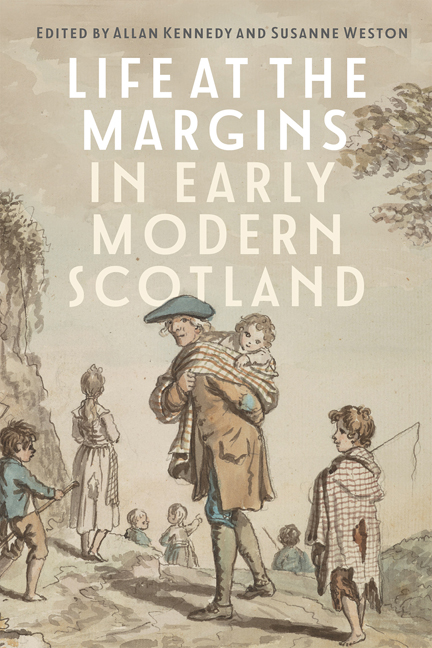6 - Working on the Margins: Freemen, Unfreemen, and Stallangers in Early Modern Scotland
Published online by Cambridge University Press: 08 May 2024
Summary
In the National Museum of Scotland is a sculptured stone which once belonged to an Edinburgh baxter at the Netherbow (Figure 1). The stone, with its gothic script and male and female figures in classical dress, is quite striking, not least because of the messages it conveys. The figures are of Adam and Eve, and the message carved on the stone is a reminder of a curse. After the Fall, Adam and Eve were cast out of the Garden of Eden, and one consequence of their sin was that, from that point forward, mankind would have to work for their living. The stone from the Netherbow therefore achieved several things at one time. It was a marker, telling passers-by where to get their bread; it was a status symbol, illustrating the cultural pretensions of the tradesman; and – most importantly – it was a pious aide-mémoire. ‘With sweat on your brow shall you eat your bread’ was the Genesis curse. In this one carving customers were reminded not only of their own sinfulness and need for Christ, but also of the hard work which had gone into baking their bread. While customers might not have to sweat in front of the oven, it was certainly in the baxters’ interest to remind them of those who did.
That said, the baxters did not actually want anyone else to sweat in the baking of bread. They sought to exclude all others from this work, as there were supposedly two kinds of people in the early modern corporate system: free and unfree. To be a baxter meant joining the privileged and chartered Incorporation of Baxters. In this context of ‘corporatism’, there were the privileged few and the excluded majority. There were those inside, and the rest who must remain outside. While this meant different things in different contexts, as with political estates, houses of the great families, or religious confessions, in the world of work it meant actively defending one's right to work by denying those outside the corporate body. Of course, the ideal and the reality were not necessarily the same thing, and despite expensive court cases and appeals to councils to enforce charters, many unfreemen continued to work free trades. Monopoly may have been the goal, but it was not always achievable.
Still, the system was intended to maintain privilege. Towns, full of people, had few citizens.
- Type
- Chapter
- Information
- Life at the Margins in Early Modern Scotland , pp. 97 - 113Publisher: Boydell & BrewerPrint publication year: 2024



